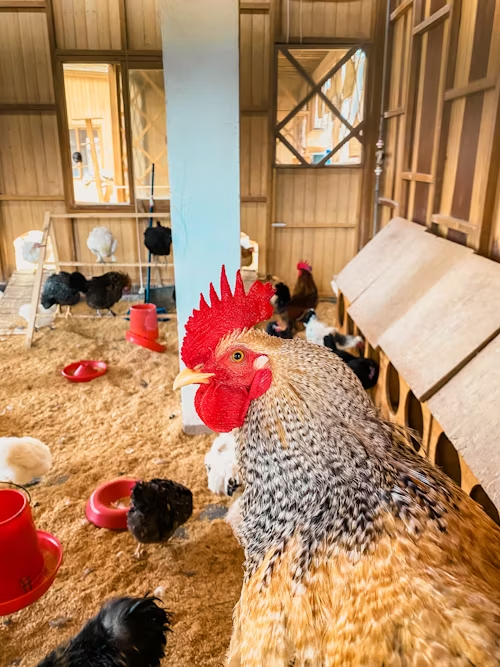
Commercial Feed Options
A comparison of pelleted, crumble, and mash forms, plus organic vs. conventional options.
Read MoreJust like humans, chickens need a balanced diet to thrive. Proper nutrition leads to healthier birds, better egg production, stronger immune systems, and longer lives. Nutrition requirements vary based on age, breed, and whether your chickens are layers or meat birds.
While commercial feeds provide a good base, understanding the fundamentals of chicken nutrition helps you make informed choices and supplement appropriately.

A comparison of pelleted, crumble, and mash forms, plus organic vs. conventional options.
Read More
What kitchen scraps are safe to feed your chickens and which ones should be avoided.
Read More
Create your own balanced feed mixes for maximum nutrition at a lower cost.
Read More| Nutrient | Function | Natural Sources |
|---|---|---|
| Protein | Growth, feather development, egg production | Insects, mealworms, grains, legumes |
| Calcium | Eggshell formation, bone health | Oyster shell, limestone, crushed eggshells |
| Vitamin A | Vision, immune system, reproduction | Leafy greens, carrots, sweet potatoes |
| Vitamin D | Calcium absorption, bone health | Sunlight exposure, fish oil |
| Vitamin E | Antioxidant, immune support | Grains, leafy greens, seeds |
| Grit | Digestion (not a nutrient but essential) | Small stones, commercial grit |
Free-choice feeding is generally best for backyard flocks, allowing chickens to eat when hungry.
Always provide clean, fresh water. Chickens consume about twice as much water as feed by weight.
Treats should make up no more than 10% of a chicken's diet to avoid nutritional imbalances.
During molting or extreme cold, increase protein to support feather regrowth and warmth.
Get access to our complete library of chicken feed guides, seasonal nutrition plans, and DIY feed recipes